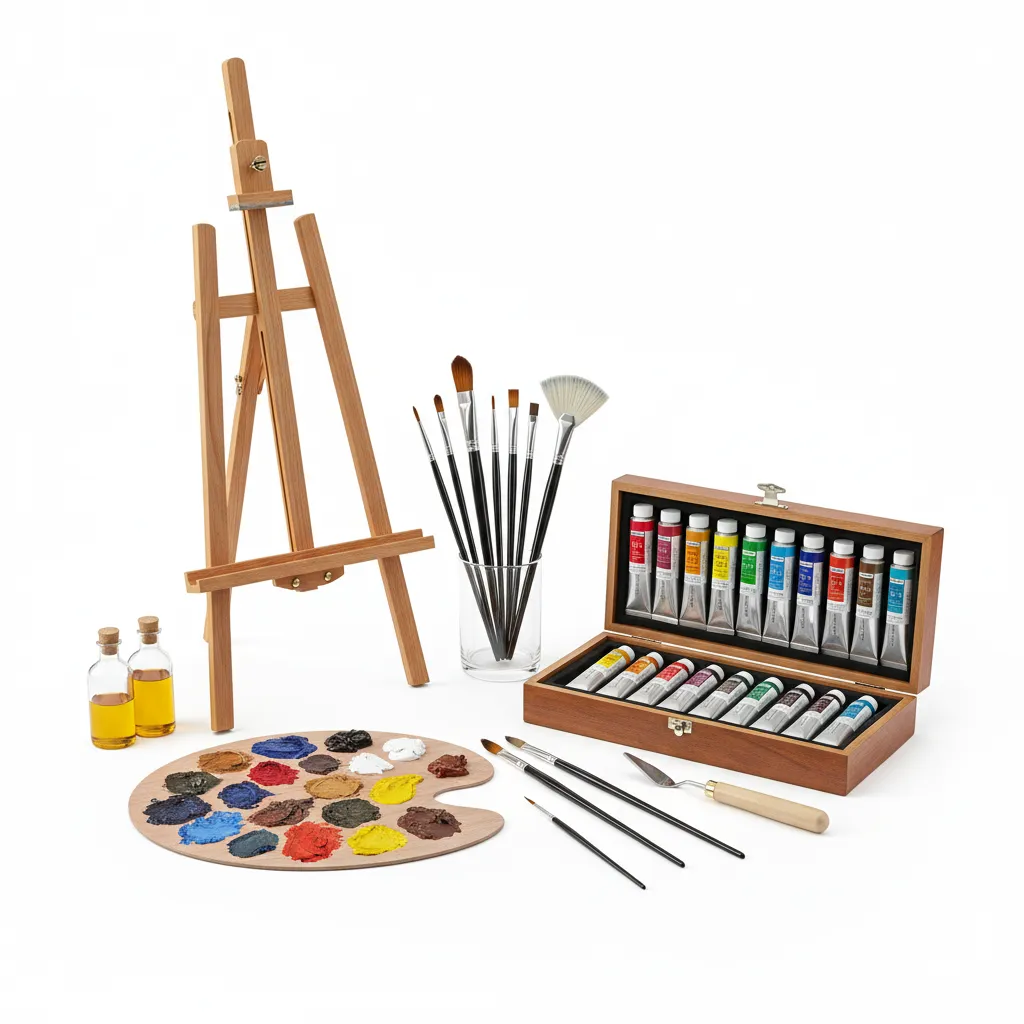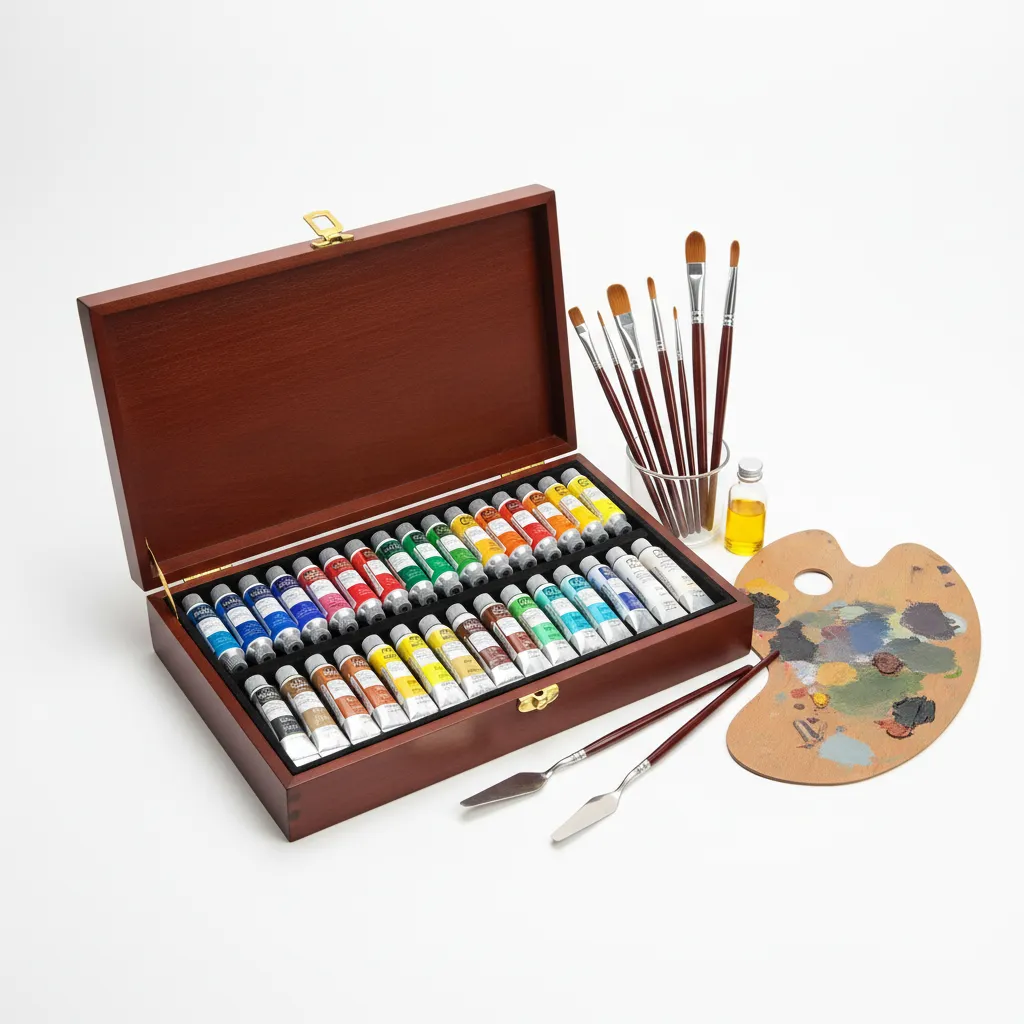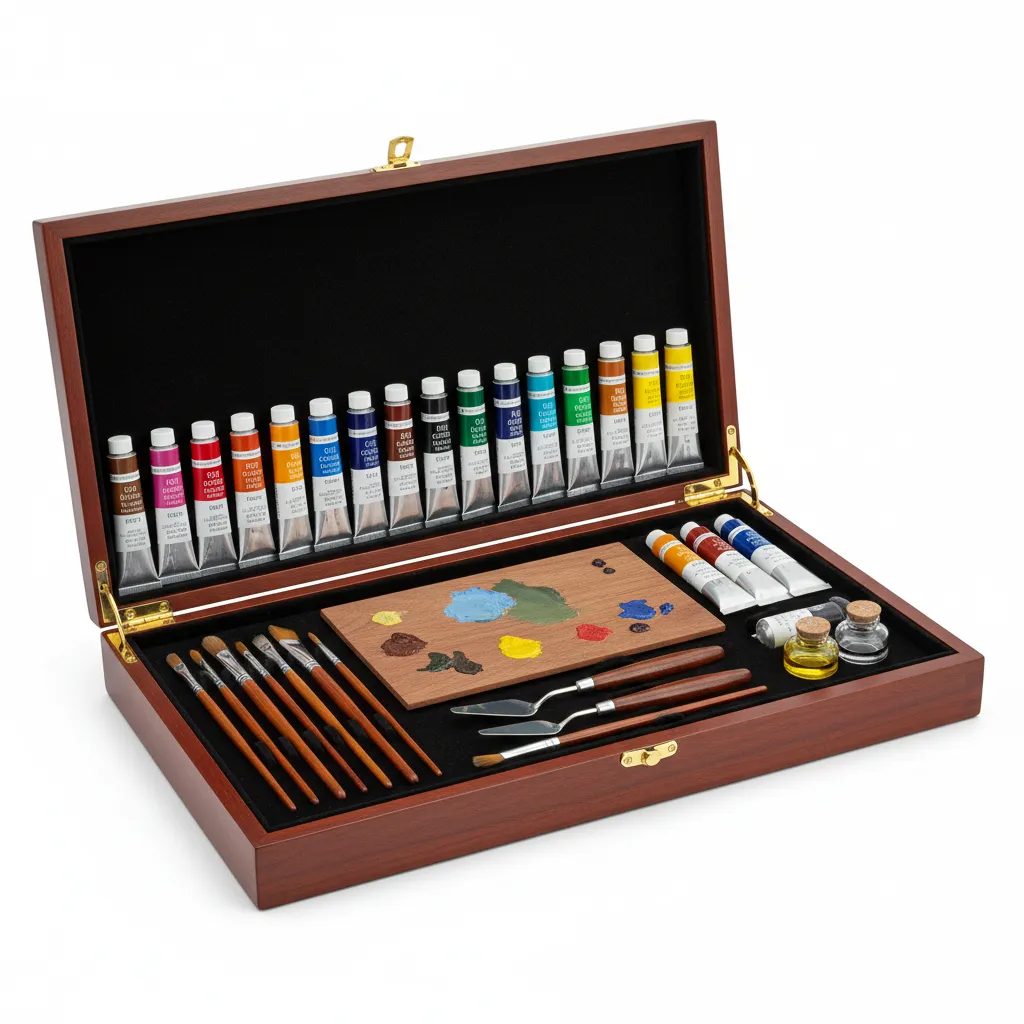Can You Clean Oil Paint Brushes With Water?
Published on: March 12, 2025 | Last Updated: January 7, 2025
Written By: Alisha Winters
Oil paint brushes are special tools for painting. They help you create beautiful art with thick, colorful oils.
So, can you clean oil paint brushes with water? It’s super important to know the right way to clean your brushes, or they can get ruined. I once forgot and had to toss my favorite brush!
In this guide, you’ll learn how to clean oil paint brushes, the best ways to prepare them for cleaning, steps to clean properly, factors that affect the cleaning process, and common issues. Plus, we’ll touch on how to dry a paint brush fast and how to take care of paint brushes.
Contents
- 1 Can You Clean Oil Paint Brushes With Water?
- 2 What Are Oil Paint Brushes?
- 3 Preparation Before Cleaning Your Brushes
- 4 Step-by-step Guide to Cleaning Oil Paint Brushes
- 5 Understanding the Role of Solvents in Cleaning Oil Paint Brushes
- 6 Effects of Water on Oil Paint Residue
- 7 Factors Affecting the Cleaning Process Of Oil Paint Brushes
- 8 Common Issues When Cleaning Oil Paint Brushes With Water
- 9 Alternatives to Water for Cleaning Oil Paint Brushes
- 10 Understanding Oil Paint Residue
- 11 Finishing Touches to Care for Your Brushes
- 12 Frequently Asked Questions
- 13 Conclusion
- 14 Additional Resources
Can You Clean Oil Paint Brushes With Water?
No, you can’t clean oil paint brushes with just water. Oil-based paints don’t mix with water. Instead, use a solvent like turpentine or mineral spirits to break down the oil. Always rinse the brushes thoroughly after cleaning! If you’re curious about alternative paint applications, you might want to explore safe ways to use paint on skin.
What Are Oil Paint Brushes?
Oil paint brushes are specially designed tools for painting with oil-based paints. They feature durable bristles made from natural or synthetic fibers, typically measuring about 25 to 100 mm (1 to 4 Inches) wide, ensuring smooth application and precise strokes. If you’re curious about using different paint types on various surfaces, you might want to explore painting techniques for wood projects.
When it comes to cleaning, it’s crucial to treat your oil paint brushes correctly. I learned that using water alone doesn’t work for oil paints; the residue doesn’t wash away like it does with acrylics. Professional artists recommend using specific solvent cleaning techniques to maintain brush quality, and I always keep my tools in top condition by selecting the right cleaning methods.
I found it very handy to clean my brushes after a long day of painting. Discovering that vinegar helped dissolve the tough paint left on my tools made a world of difference! Properly cleaning your brushes is key to ensuring their longevity and performance. When working with different paint types, I always seek specific cleaning techniques. acrylic painting techniques matter Remember, your brushes deserve care, especially when dealing with oil paints!
Preparation Before Cleaning Your Brushes
What do you need to clean oil paint brushes?
- Solvent: You’ll need a good solvent, such as turpentine or mineral spirits. It dissolves oil paint effectively.
- Brush Cleaner: Look for Instant Artist Brush Cleaner or Winsor & Newton Brush Cleaner. It conditions your brushes and removes pigment easily.
- Container: A clean glass jar or metal can, like a Quart Paint Can. It holds your solvent securely and prevents spills.
- Paper Towels: Get sturdy towels, like Brawny or Scott. You’ll need them to wipe off excess paint and clean your brushes efficiently.
- Gloves: Wear chemical-resistant gloves, like Ansell Nitrile. They protect your skin from solvents and paint.
So far, we covered how to prepare for cleaning your brushes. Let’s look at the step-by-step guide for cleaning oil paint brushes next.
Also See: Can You Apply Primer Over Paint? Here’s What to Know!
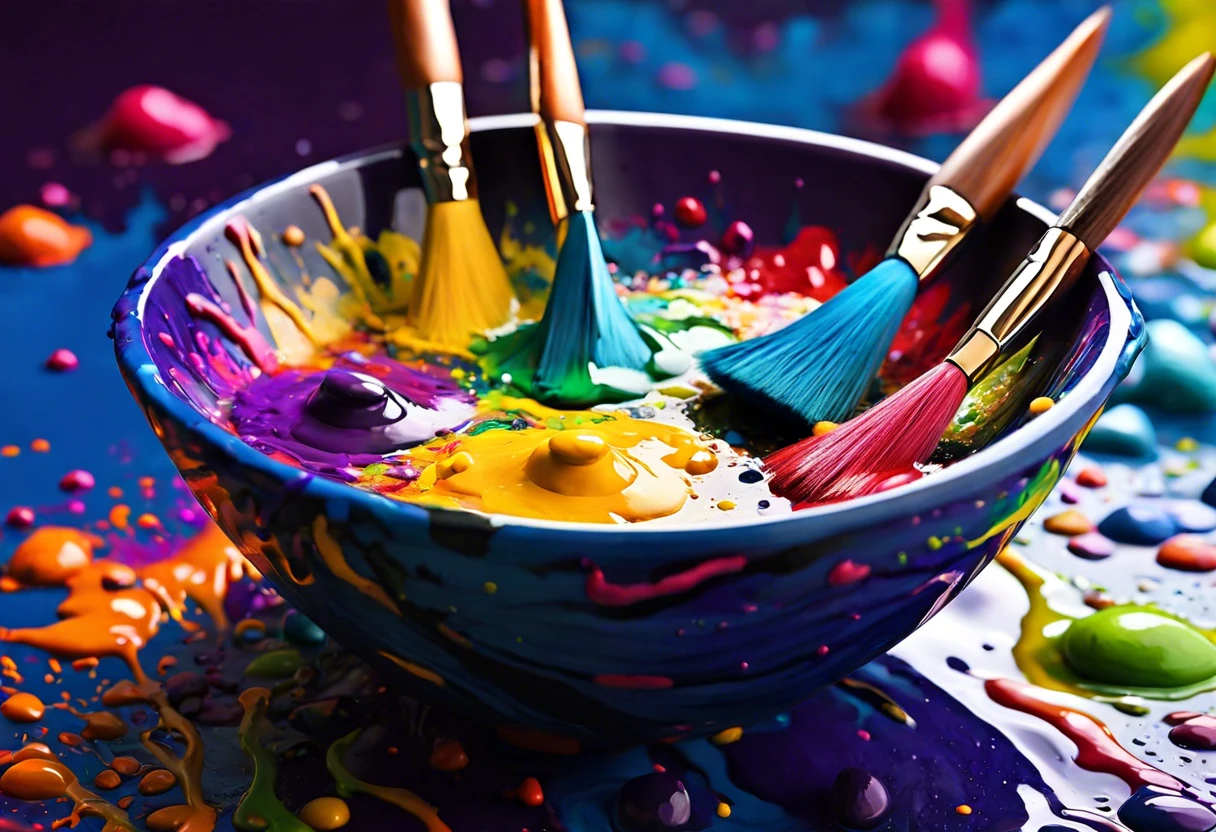
Step-by-step Guide to Cleaning Oil Paint Brushes
Here are the steps to clean oil paint brushes using water as the primary method.
-
Remove Excess Paint
Start by gently wiping the oil paint brush on a paper towel or rag. Do this until most of the paint comes off—aim for 90% removal for the best results!
This step speeds up the cleaning process. Less paint in your brush means less pigment stuck during rinsing.
-
Rinse in Water
Next, use warm water—ideally between 37°C and 43°C (100°F to 110°F)—to rinse your brush. Submerge the bristles and swirl gently to loosen any remaining paint.
Keep in mind, you won’t get all the paint out just with water, but it significantly reduces residue, making the next steps easier.
-
Use the Right Solvent
If some paint lingers, switch to a solvent like mineral spirits or turpentine to break down the oils. Dip the brush and gently agitate it; you can use a separate container for this.
Using the right solvent can drastically cut down cleaning time. For heavy residue, some artists prefer three changes of solvent, swirling well in each!
-
Wash With Soap
After using the solvent, apply a mild liquid soap—like dish detergent or specialized brush soap—and lather your brush in warm water. Work it well into the bristles.
Rinse until the water runs clear. For thorough cleaning, it’s wise to repeat this step until you eliminate all traces of paint.
-
Shape and Dry Your Brushes
Finally, reshape the brush bristles using your fingers. Lay them flat on a towel to air dry; avoid standing them upright, as that can warp your bristles over time.
Consistent care ensures your brushes last longer and maintain their fine detail. Ideally, store them horizontally to preserve their shape!
That covers techniques, materials, and tips for cleaning oil paint brushes. Let’s now take a look at solvents in this process.
Understanding the Role of Solvents in Cleaning Oil Paint Brushes
Let’s dive into why solvents are essential for cleaning oil paint brushes.
-
What are Solvents?
Solvents are liquids that dissolve other substances. In painting, they break down oil paints, making cleanup easier!
-
Common Solvents for Oil Paints
Here are a few you might encounter:
- Mineral Spirits: A common choice, it’s effective and less toxic.
- Turpentine: Stronger than mineral spirits, it’s great for heavy-duty cleaning.
- Odorless Mineral Spirits: A friendlier option for the environment, it’s less stinky!
We have now covered the role of solvents in cleaning oil paint brushes. Next, we will discuss the effects of water on oil paint residue.
Effects of Water on Oil Paint Residue
What happens when you try cleaning with just water? Let’s break it down.
| Method | Effectiveness | Remarks |
|---|---|---|
| Water Only | Low | Water doesn’t dissolve oils, leaving residue behind. |
| Water with Soap | Medium | Soap helps but still struggles with heavy oils. |
| Water with Vinegar | Medium-High | Vinegar breaks down some paint, a natural alternative! |
| Water with Solvent | Very High | Best method – effectively cleans the brush! |
You should now have a good understanding of how water impacts oil paint residue. In the next part, we’ll discuss the elements influencing the brush cleaning process.
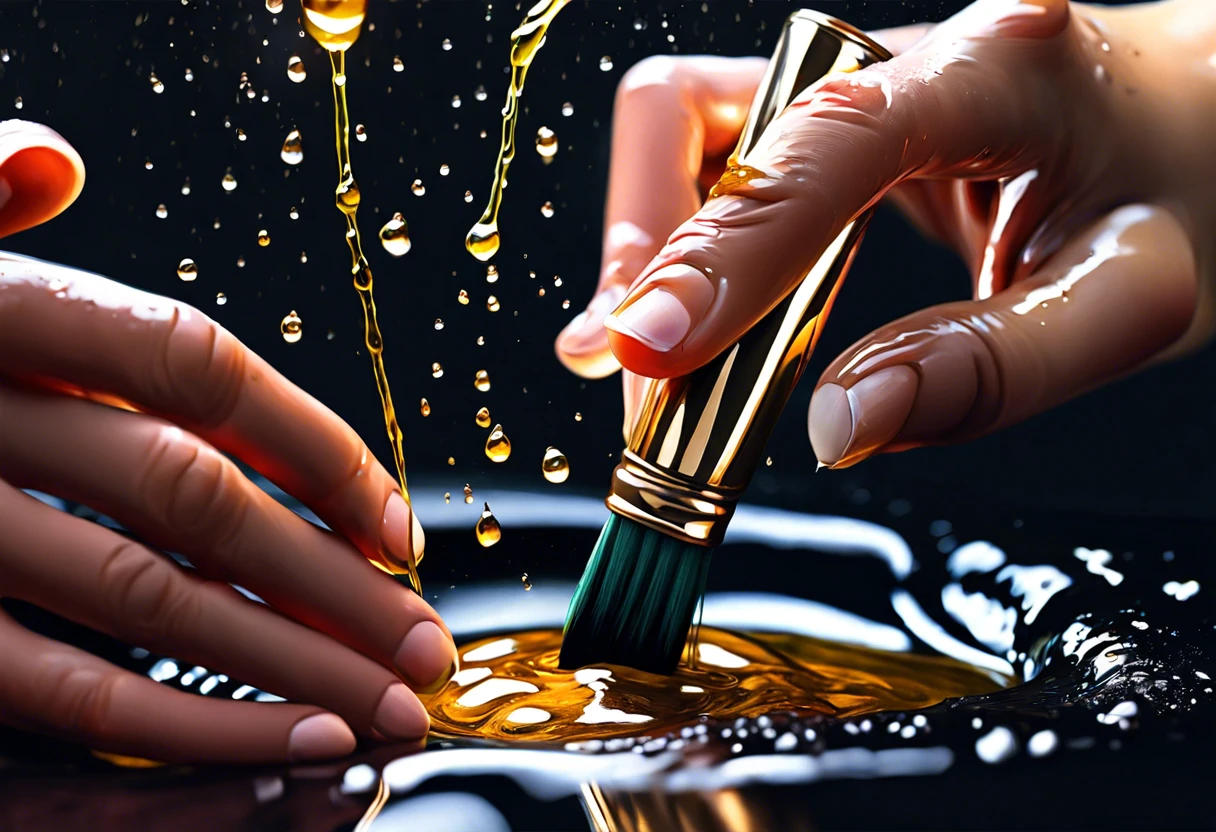
Factors Affecting the Cleaning Process Of Oil Paint Brushes
What factors influence the ease of cleaning oil paint brushes?
-
Type of Paint Used: Thicker paint creates tougher residue, making it hard to clean with just water.
-
Water Temperature: Hot water loosens paint effectively, while cold water may not work as well.
-
Brush Material: Synthetic brushes handle water better than natural bristles, which may retain color.
-
Cleaning Solution: Adding vinegar or soap to water can significantly improve the cleaning process.
Common Issues When Cleaning Oil Paint Brushes With Water
My friend tried cleaning her oil paint brushes with water and ended up with a gooey mess. The water mixed with the paint, making the brushes unusable.
To fix this, use solvents like mineral spirits (1 L = 33.8 Fl Oz) to dissolve the oil completely. Rinse with warm water and ensure thorough cleaning to extend your brush’s life.
Alternatives to Water for Cleaning Oil Paint Brushes
Let’s explore some effective alternatives that can help you clean your oil paint brushes better than water alone.
-
Vinegar Solutions
Mild vinegar is a good natural cleaner. Mix equal parts water and vinegar. Soak your brushes for about 10 minutes to loosen the paint.
-
Soap and Water
Use a strong dish soap with warm water after rinsing. This combo can aid in breaking down leftover oils.
-
Specialized Brush Cleaners
Products like Masters Brush Cleaner not only clean but also condition the bristles, extending the life of your brushes.
Understanding Oil Paint Residue
Why does oil paint create such tricky residue? Here’s what you need to know.
| Residue Type | Cause | Cleaning Challenge |
|---|---|---|
| Fresh Paint | Recently applied oil paint. | Generally easier to remove. |
| Dried Paint | Paint left on brush for too long. | Sticks hard to bristles, needs solvents. |
| Thick Residue | Using heavy body oil paints. | Requires more effort and multiple cleaning agents. |
Finishing Touches to Care for Your Brushes
After cleaning oil paint brushes, use a mixture of odorless mineral spirits and 1 part linseed oil (0.12 L Per 1 L) for optimal results. Gently reshape the bristles after washing.
Inspect each bristle for signs of damage or fraying. Look for loose hairs, especially near the ferrule; I often notice these issues on my Princeton Artisan brushes.
If this isn’t your first time caring for your brushes, try soaking them in higher-quality solvents, like Gamblin odorless mineral spirits, for better pigment release during deep cleaning.
Frequently Asked Questions
What Are the Recommended Solvents for Cleaning Oil Paint Brushes?
Yes, the recommended solvents for cleaning oil paint brushes include mineral spirits and turpentine. These solvents effectively break down oil paint and help preserve the bristles for longer use.
How Often Should I Clean My Oil Paint Brushes?
You should clean your oil paint brushes after each painting session. Regular cleaning prevents paint from hardening and damaging the bristles, which can happen in just a few hours.
What Can Happen if I Don’t Clean My Oil Paint Brushes Properly?
If you don’t clean your oil paint brushes properly, dried paint can ruin the bristles. This buildup can make brushes unusable within a week or even faster, wasting your investment.
Are There Any Alternatives to Harsh Solvents for Cleaning Brushes?
Yes, alternatives like vinegar or soap and water can be used to clean brushes. While they’re less effective on heavy paint, they’re safer and eco-friendly options for regular maintenance.
How Can I Store My Used Paint Brushes Properly?
To store your used paint brushes, wrap them in plastic wrap or place them in a jar with the bristles facing up. This keeps them clean and maintains their shape until your next painting session. If you’re curious about alternative uses for paint, such as painting directly on skin safely.
Conclusion
In this guide, we explored various oil paint brush techniques, preparation steps, a step-by-step cleaning method, recommended color palettes, different types of brushes, factors affecting cleaning, common problems, finishing touches, and creative DIY projects utilizing cleaned brushes.
To answer the question: Can you clean oil paint brushes with water? The short answer is no; using solvents or vinegar provides the best results. Always remember that proper preparation and care are essential for maintaining your brushes.
For more insights and resources, explore our homepage: Paint Answers.
Additional Resources
- Edwards, B. (2012). Drawing on the Right Side of the Brain. New York, NY: TarcherPerigee.
- How to Clean Oil Paint Off Brushes: Tips for Artists
- How to Clean Oil Paint Brushes Using Solvents, Oil, & Soap
Experienced interior designer with 15+ years in transforming spaces, blending artistry with expertise in color and design. Rhode Island School of Design graduate, specializing in restorations and modern makeovers.
Cleaning, Topics
Also See: Can You Use Water Based Paint Over Oil Based Primer?

